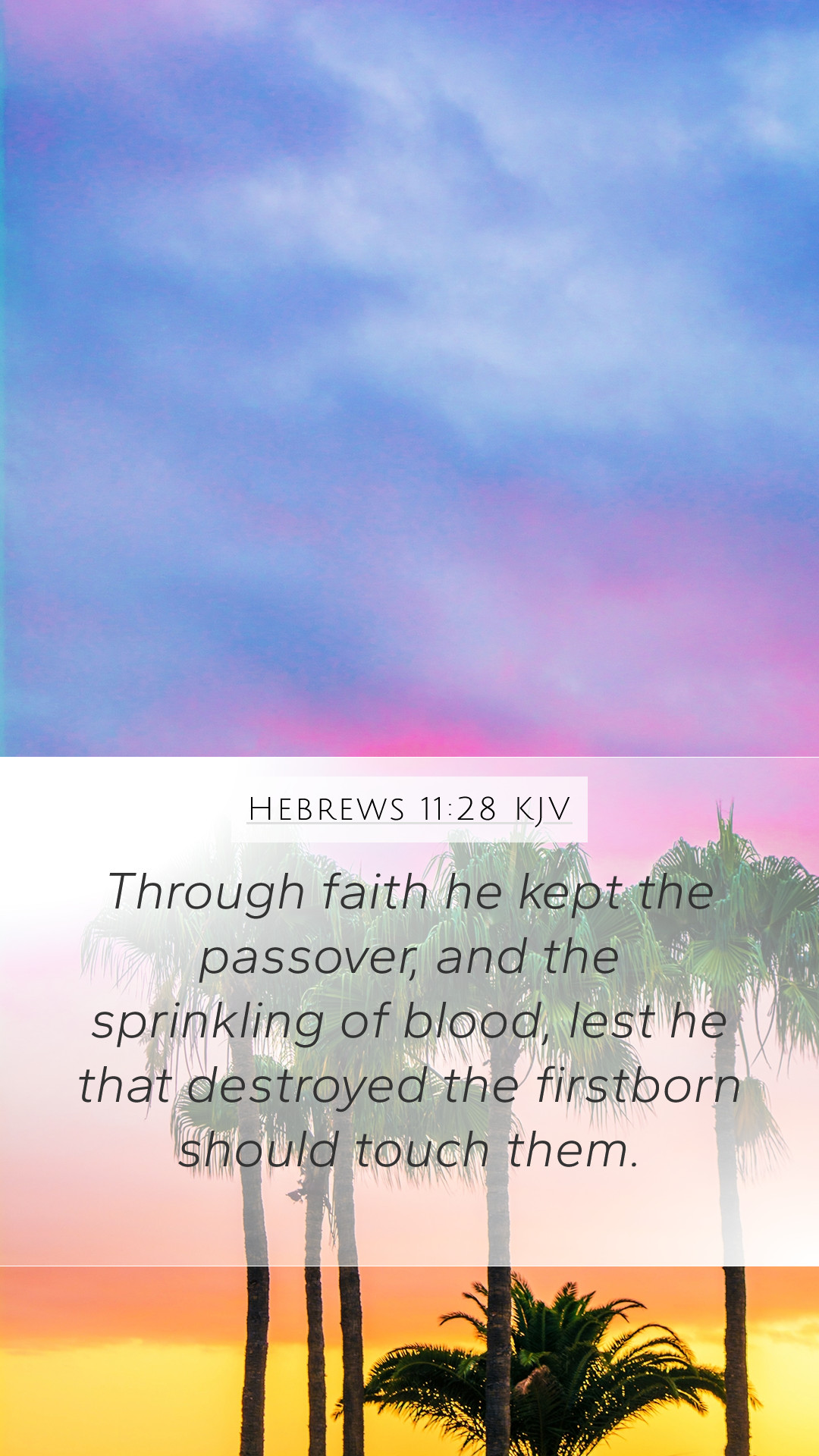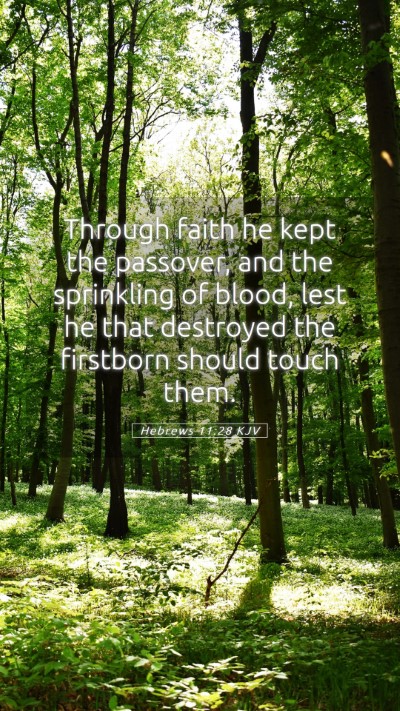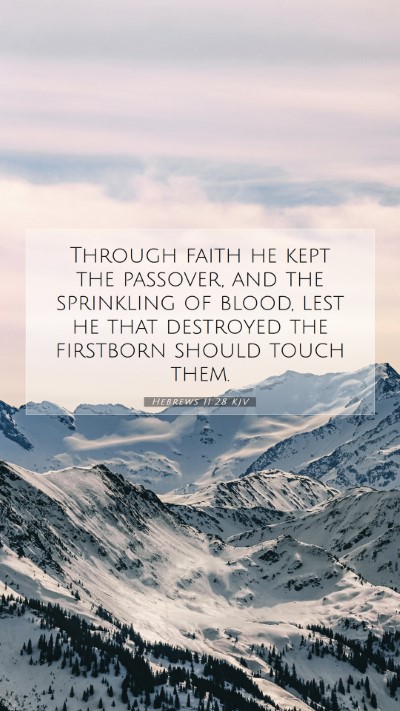Understanding Hebrews 11:28
Bible Verse: Hebrews 11:28 - "Through faith he kept the passover, and the sprinkling of blood, lest he that destroyed the firstborn should touch them."
This verse is part of the great hall of faith found in Hebrews 11, highlighting the exemplary faith of Moses. Here, the author illustrates how Moses, by faith, instituted the Passover, an act that both commemorated God's deliverance and looked forward to the redemptive work of Christ.
Commentary Insights
This verse has been expounded upon by various esteemed theologians, including Matthew Henry, Albert Barnes, and Adam Clarke, who offer rich insights for understanding Scripture. Below are their combined reflections:
-
Matthew Henry:
Henry emphasizes the obedience of faith that Moses displayed. By observing the Passover, Moses acted upon God's command, demonstrating that true faith is not silent but is manifest in actions. The sprinkling of blood served as a protective measure, showcasing the efficacy of sacrifice and the idea of atonement. This act was a precursor to Christ's ultimate sacrifice, establishing a parallel between the Old and New Covenants.
-
Albert Barnes:
Barnes explains that the Passover was a vital moment in Israel's history — a divine ordinance that required faith and obedience. He notes that Moses' faith was in the power of God to save His people from death through the blood of the lamb. This underscores the importance of recognizing and adhering to God's instructions, reinforcing the understanding that God provides a way of salvation through obedience. The significance of blood as a protection against death points toward the foreshadowing of Christ's blood as a means of salvation for believers today.
-
Adam Clarke:
Clarke outlines the historical context of the Exodus narrative, explaining that the Israelites were instructed to mark their doors with the blood of a lamb, which would signify God's judgment passing over their households. He highlights the faith of Moses and Israel as instrumental for their deliverance. Furthermore, Clarke connects this act with the New Testament, portraying Jesus Christ as the Paschal Lamb whose sacrifice provides salvation. The emphasis on faith as a protective measure against divine judgment is central to both the ancient celebration and contemporary Christian observance of communion.
Meaning and Significance
The overarching theme of Hebrews 11:28 revolves around faith and obedience. The passage captures the essence of faith in action, revealing how Moses, through his unwavering trust in God, initiated a ritual that would become a foundational element of Jewish worship and Christian understanding.
Key Takeaways:
- This verse illustrates the pivotal role of faith in fulfilling God's commands.
- Moses was a pivotal figure who acted in faith, leading to the liberation of God’s people.
- The Passover serves as a significant symbol of redemption, both in the context of the Exodus and the New Covenant.
- Understanding this verse requires recognizing the interconnectedness of the Old and New Testaments, particularly in the concept of sacrifice.
Applications for Bible Study
For those engaged in Bible study groups or seeking Bible study resources, Hebrews 11:28 can provoke rich discussions about faith, obedience, and the significance of the Passover in both the Old Testament and its fulfillment in the New Testament. Here are some suggested topics for further exploration:
- Faith and Obedience: How do these concepts intersect in the lives of biblical figures?
- The Significance of Sacrifice: What is the role of the sacrificial system in the Old Testament versus the New Testament?
- Understanding the Passover: How does the Passover inform Christian practices today, such as Communion?
- Historical Context: What events led to the establishment of the Passover, and how can they inform our understanding of salvation?
Cross References
This verse connects with several other scripture passages that reinforce its themes:
- Exodus 12:21-23: The original institution of the Passover.
- 1 Corinthians 5:7: Christ our Passover has been sacrificed for us.
- John 1:29: Jesus is referred to as the Lamb of God who takes away the sin of the world.
Conclusion
Hebrews 11:28 not only highlights a significant act of faith by Moses but also bridges the narrative of the Old Testament with the New Testament’s teaching on redemption and salvation. Understanding this verse enriches our Bible verse commentary and enhances our Bible study insights, allowing believers to appreciate the profound truths embedded within Scripture.


